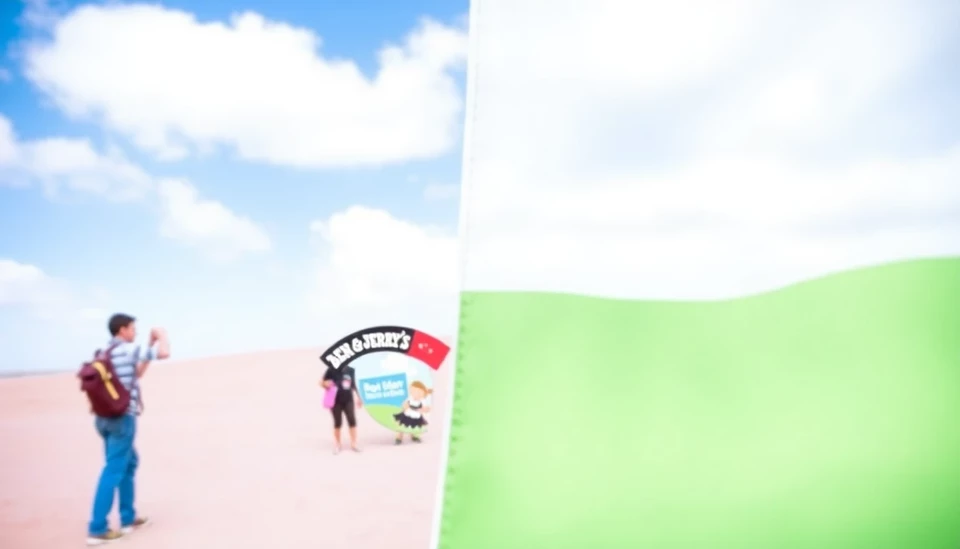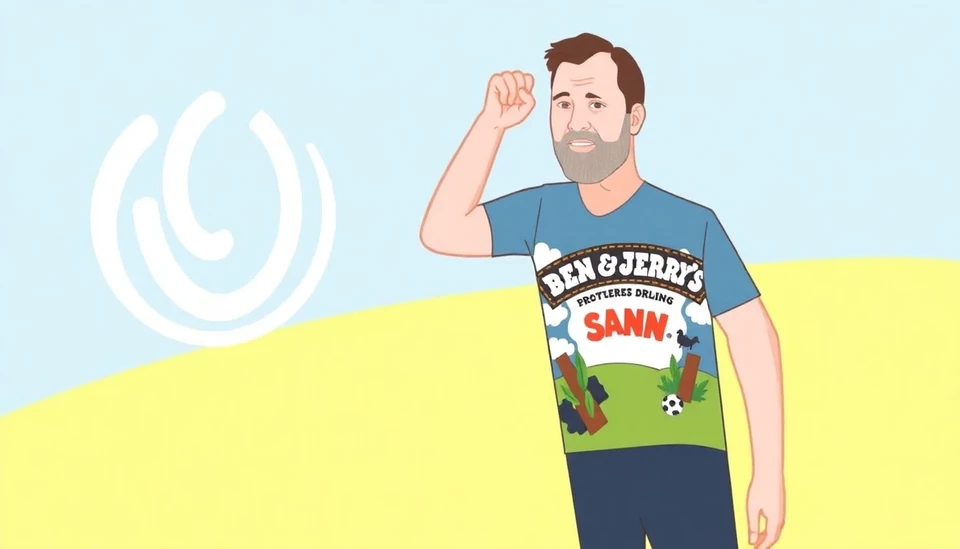
In a bold move that has sent ripples through the corporate world, Ben & Jerry's has filed a lawsuit against its parent company, Unilever. The ice cream brand is challenging what it describes as restrictive measures imposed by Unilever that limit its ability to express its views on pressing global issues, particularly the ongoing conflict in Gaza.
As a company that has long championed social justice and activism, Ben & Jerry's claims it has been "muzzled" by Unilever as tensions escalated in the Middle East. The complaint highlights the brand's commitment to taking a stand on significant issues affecting society, and it insists that the parent company is infringing on its rights to express these views publicly.
This legal confrontation stems from a pattern the ice cream maker has noted since the latest outbreak of violence in Gaza, where it has actively advocated for Palestinian rights. The lawsuit, filed in a Vermont court, alleges that Unilever has threatened the brand with punitive measures if it continues to publicly address matters related to the Israeli-Palestinian conflict.
The backdrop of the complaint draws attention to Unilever’s stature as a multinational corporation and the inherent complexities faced by brands with outspoken activism. The lawsuit underscores the delicate balance between corporate governance and brand advocacy in a time of heightened global sensitivity and conflict.
Ben & Jerry's has positioned itself as a leader in corporate social responsibility over the years, with a track record of addressing social and environmental issues head-on. Its stance on various political matters, including climate change and racial justice, has often drawn public attention and both praise and criticism.
The current legal battle raises significant questions about corporate free speech, particularly for brands that operate under larger corporate umbrellas. As the lawsuit unfolds, observers are keenly watching how this conflict may set precedents for future engagements between corporate entities and their subsidiaries regarding political stances and free speech rights.
In response to the lawsuit, Unilever issued a statement reaffirming its corporate governance policies, which it claims are designed to maintain neutrality on political issues. The corporate giant holds that its policies are in place to protect brands like Ben & Jerry's from the backlash that can arise from polarizing topics.
This case brings to light the complexities of corporate activism in today's polarized environment, where consumers increasingly expect brands to take stances on social issues but must navigate the corporate strategies that govern their actions. As the legal proceedings continue, Ben & Jerry's and its supporters passionately emphasize the importance of upholding the spirit of social activism that the brand is known for, while Unilever faces scrutiny over its policies that potentially stifle such expression.
The outcome of this lawsuit could reshape the landscape of corporate responsibility and activism, possibly influencing how companies navigate the interplay between commerce and social advocacy in an era marked by significant social challenges.
As developments unfold, the case remains a focal point for discussions about freedom of expression within corporate structures and the responsibilities of businesses to their values and stakeholders.
#BenAndJerrys #Unilever #Gaza #CorporateActivism #FreeSpeech #SocialResponsibility
Author: John Harris


